Online Media
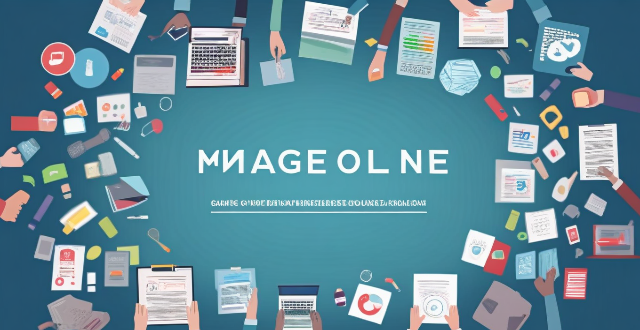
How do celebrities manage their online presence and reputation on social media ?
Celebrities manage their online presence and reputation on social media by hiring a social media manager, maintaining consistency across platforms, engaging with fans, promoting positive messages, handling criticism gracefully, and monitoring their image. These strategies help them maintain a positive online presence while connecting with fans and promoting their work effectively.

How does the globalization of sports media affect fan engagement and consumption patterns ?
The globalization of sports media has significantly impacted fan engagement and consumption patterns. Enhanced accessibility through live streaming, on-demand content, and digital platforms has revolutionized how fans watch and interact with sports. Diverse content offerings, including international coverage and multilingual broadcasts, have expanded the reach of sports to global audiences. Personalized experiences through customized content and fantasy sports have increased fan engagement. Additionally, virtual events, e-sports, and online tournaments provide new opportunities for fans to participate and engage. Changes in consumption patterns, such as a shift towards digital subscription models and online merchandise shopping, reflect the evolving landscape of sports media. Overall, the globalization of sports media has transformed the way fans consume and enjoy sports worldwide.

What are the psychological effects of social media on teenagers ?
This article discusses the psychological effects of social media on teenagers, including increased anxiety and depression due to comparison with others' lives, fear of missing out (FOMO), cyberbullying, disrupted sleep patterns, decreased face-to-face interaction, body image issues, and cyberchondria. Parents and educators should monitor their children's social media usage and encourage healthy habits to help them navigate these challenges.

How can parents monitor their children's social media use effectively ?
Social media has become an integral part of children's lives, posing risks like cyberbullying and inappropriate content exposure. Effective monitoring by parents is crucial for ensuring their safety. Strategies include establishing open communication, educating children about online safety, using parental control tools, setting boundaries and limits, encouraging offline activities, and staying involved and updated. These measures can foster trust and understanding while promoting safe and responsible social media use among children.

How do I find buy one get one free offers online ?
To find buy one get one free offers online, use coupon websites, check store websites, follow brands on social media, join loyalty programs, search online forums and discussion boards, and set up deal alerts.

What role does social media play in product review dissemination ?
The article discusses the significant role of social media in product review dissemination. It highlights the concept of "social proof" where people trust and adopt a product seeing others using it and sharing positive reviews. Social media platforms provide a platform for users to share their experiences with products, both good and bad, which can greatly influence potential customers' purchasing decisions. User-generated content (UGC) is a powerful tool for brands looking to promote their products. By encouraging customers to share their experiences with a product on social media, brands can leverage the power of social proof to attract new customers. Influencer marketing is another way that social media affects product review dissemination. Brands partner with influencers who have large followings on social media platforms to promote their products. Online reviews have become an essential part of the purchasing process for many consumers. Social media platforms provide a space for users to share their thoughts and opinions about products, allowing potential customers to make informed decisions before making a purchase. The trustworthiness, variety of opinions, and timeliness of online reviews greatly impact a consumer's decision to purchase a product or not. In conclusion, social media plays a crucial role in product review dissemination by providing a platform for users to share their experiences with products, promoting user-generated content and influencer marketing, and facilitating the sharing of online reviews.

In what ways can social media impact my personal image ?
Social media has become an integral part of our daily lives, and it can significantly impact our personal image. Here are some ways in which social media can affect how others perceive us: Positive Effects: - Building a Professional Brand: Social media provides networking opportunities and allows individuals to showcase their achievements and expertise. - Enhancing Personal Reputation: Individuals can project a positive image by sharing accomplishments, hobbies, and interests, and engage with followers to build a loyal community. Negative Effects: - Damaging Professional Reputation: Posting unprofessional content or oversharing personal information can harm one's professional image and lead to privacy breaches. - Harming Personal Reputation: Cyberbullying and sharing false information can damage mental health and make individuals appear unreliable or irresponsible. Managing Your Online Presence: - Best Practices for Maintaining a Positive Image: Monitor your content, use privacy settings, think before you post, and maintain consistency across platforms. - Handling Negative Situations: Address mistakes proactively and seek professional help if necessary. Overall, social media can be a powerful tool for enhancing or damaging one's personal image. By being mindful of what you share online and actively managing your digital footprint, you can use social media to your advantage while minimizing potential risks.
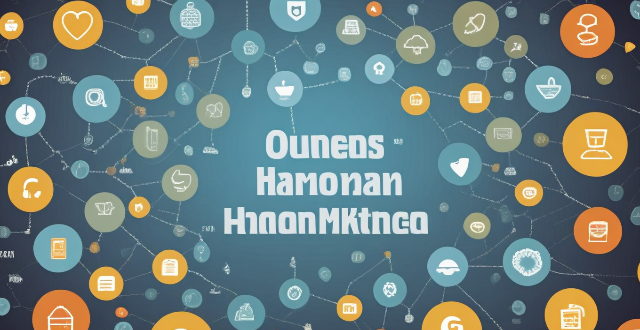
Can social media platforms be used to enhance social harmony ?
Can social media platforms be used to enhance social harmony? The text discusses the positive impact of social media on social harmony, including connectivity and communication, sharing information and ideas, and civic engagement and activism. However, it also highlights challenges and risks such as misinformation and fake news, online harassment and cyberbullying, and echo chambers and polarization. The conclusion states that social media platforms have the potential to enhance social harmony, but challenges must be addressed to ensure their positive impact.

What role does social media play in digital marketing ?
The Role of Social Media in Digital Marketing Social media has become an essential component of digital marketing, offering businesses numerous opportunities to promote their products and services online. Here are some key ways social media influences digital marketing: 1. Brand Awareness and Visibility - Increased Exposure: Social media platforms offer businesses a chance to reach a wider audience, increasing brand visibility. - Targeted Ads: Platforms like Facebook and Instagram allow for targeted advertising, ensuring that the right message reaches the right people. - Hashtags and Trending Topics: By participating in trending topics and using relevant hashtags, brands can increase their visibility and join conversations that align with their values. 2. Customer Engagement and Interaction - Direct Communication: Social media provides a platform for direct communication between businesses and customers, fostering better relationships. - Instant Feedback: Businesses can receive immediate feedback from customers, helping them improve products or services quickly. - Loyalty and Advocacy: Engaged customers often become brand advocates, promoting the business through word-of-mouth on their own social networks. 3. Content Marketing - Rich Media: Social media allows for various forms of content, including images, videos, and articles, making it easier to engage users. - Storytelling: Brands can use social media to tell stories that resonate with their audience, creating an emotional connection. - Influencer Collaborations: Partnering with influencers can help extend a brand's reach and credibility among specific demographics. 4. Lead Generation and Conversion - Promotions and Discounts: Social media is an effective channel for promoting sales and discounts, driving traffic to websites or physical stores. - Contests and Giveaways: These activities not only generate excitement but also encourage user-generated content, further expanding a brand's reach. - Retargeting: Through retargeting ads, businesses can remind potential customers of their interest in a product or service after they've interacted with the brand online. 5. Data Collection and Analysis - Insights and Analytics: Most social media platforms provide analytics tools that offer valuable insights into customer behavior and preferences. - Audience Segmentation: By analyzing social media data, businesses can segment their audience and tailor their marketing efforts accordingly. - Competitive Analysis: Social media also allows businesses to monitor competitors' activities and strategies, helping them stay ahead in the market. In conclusion, social media plays a multifaceted role in digital marketing, from enhancing brand visibility to facilitating customer interactions and generating leads. As technology continues to evolve, so will the ways in which social media influences digital marketing strategies.
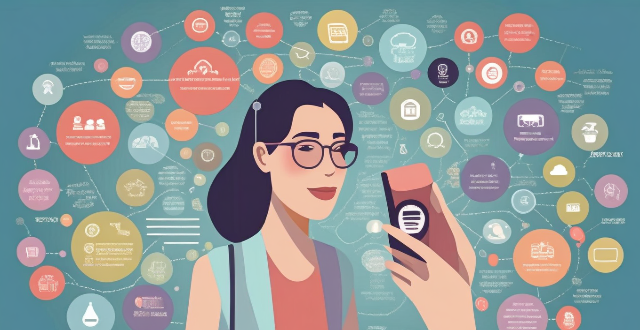
How does social media impact the development of teenagers ?
The article discusses the impact of social media on teenagers, highlighting both its positive and negative effects. The positive effects include connectivity, information and learning, and creativity and self-expression. However, the negative effects such as addiction, cyberbullying, and privacy risks are also significant concerns. The article emphasizes the need for responsible and safe use of social media by teenagers.

How do social media platforms contribute to the proliferation of celebrity romance speculation ?
The article discusses the role of social media in celebrity romance speculation, highlighting various aspects such as fan engagement, media strategies, and the nature of online content sharing. Fans create hashtags and ship names to root for their favorite celebrities, while media outlets promote stories about relationships to increase click rates. Celebrities or their teams sometimes post ambiguous photos or messages on social media, which fans interpret as hints about romantic involvements. The immediacy of social media means that any small interaction can be blown out of proportion before there's an opportunity for clarification, and fans often congregate in echo chambers where speculation is amplified. The article concludes that the proliferation of celebrity romance speculation on social media is a complex interplay between fan enthusiasm, media strategies, and the inherent traits of online platforms.

How can I ensure that my online activity is private ?
Online privacy is a significant concern, and ensuring it requires proactive measures. Use strong passwords and two-factor authentication, be cautious with personal information, use encrypted communication channels, keep software up to date, manage privacy settings, use VPNs, be wary of phishing attacks, browse incognito/private mode, and clear your digital footprint. These strategies can enhance online privacy and reduce the risk of exposing sensitive information.
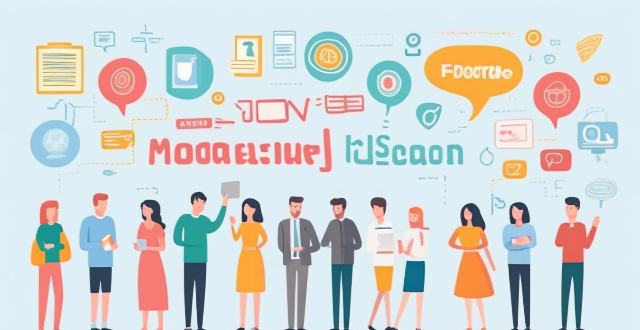
How can social media be used to mobilize young people for climate action ?
The text discusses how social media can be utilized to engage and mobilize young people for climate action. It outlines strategies for raising awareness, fostering dialogue, and driving concrete actions through educational content, influencer partnerships, hashtag campaigns, discussion forums, interactive polls and surveys, user-generated content, volunteer opportunities, online activism, and practical tips for sustainable living. The conclusion emphasizes the potential of social media as a tool for social change and calls for its wise use to shape a brighter future.

How can I protect my online privacy ?
In today's digital age, online privacy is a major concern. Here are some tips to help you protect your online privacy: Use Strong Passwords: Use a combination of letters, numbers, and symbols; avoid using personal information; change your passwords regularly. Be Careful with Personal Information: Don't share too much; be wary of scams; keep sensitive information private. Use Two-Factor Authentication: Enable two-factor authentication (2FA); use authenticator apps; be cautious with backup codes. Keep Your Software Up-to-date: Update regularly; use antivirus software; be cautious with downloads. Use Encryption: Use HTTPS; use VPNs; encrypt sensitive files. Be Careful on Social Media: Adjust privacy settings; think before you post; be cautious with friend requests.
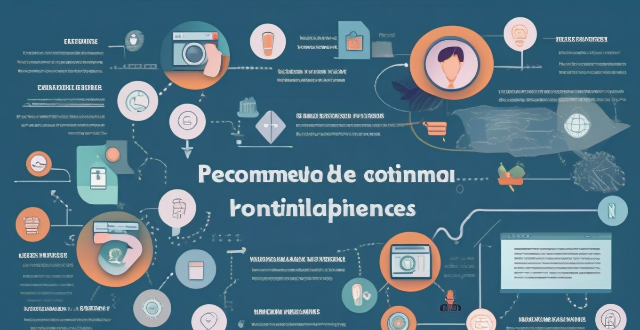
Can you recommend any online learning resources for digital marketing ?
The recommended online learning resources for digital marketing include Coursera, Udemy, HubSpot Academy, LinkedIn Learning, and Skillshare. These platforms offer courses on various aspects of digital marketing, such as search engine optimization (SEO), social media marketing, branding, customer engagement, data-driven marketing, content creation, paid advertising strategies, building a strong online presence, creating compelling visuals and copywriting for social media ads, inbound marketing methodologies, creating valuable content, developing a successful content strategy, core principles of digital marketing, advanced social media tactics, growth hacking techniques, email marketing fundamentals, and more. These resources provide learners with practical tools, frameworks, and real-world examples to apply in their work.
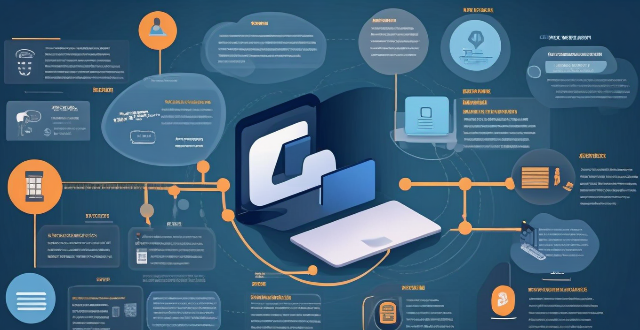
How do data protection regulations apply to social media platforms ?
This article discusses the crucial role of data protection regulations in safeguarding user information on social media platforms. It outlines key principles such as transparency, purpose limitation, and accountability that guide the handling of personal data by these platforms. The responsibilities of both social media platforms and users are highlighted, emphasizing the importance of informed consent, security measures, and user control. The article concludes by stressing the mutual responsibility of platforms and users in promoting a safe online environment through adherence to data protection regulations.

Where can I find a comprehensive ranking of online shopping sites by category ?
Finding a comprehensive ranking of online shopping sites by category can be challenging, but there are several resources available. Search engines like Google and Bing can provide a starting point, while online directories like Yahoo! Directory offer a more structured approach. Online shopping guides such as Shopzilla and Nextag provide reviews and comparison tools. Social media platforms and forums can also offer recommendations from people with firsthand experience.
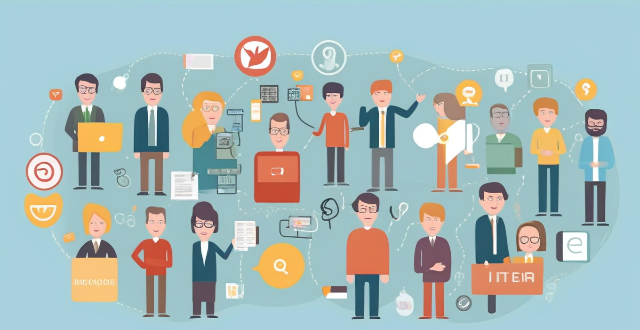
How do celebrities use social media to engage with their fans ?
Celebrities use social media to engage with fans through personal updates, interactive posts, live streaming, collaborations, promotional campaigns, and direct messaging.
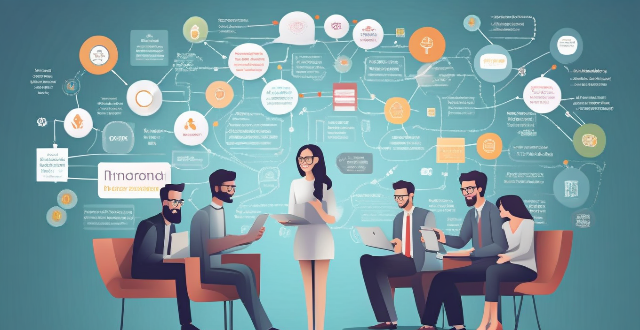
What are the pros and cons of using social media in education ?
The article discusses the advantages and disadvantages of using social media in education. Advantages include enhanced communication, collaboration and networking, access to diverse information, skill development, and flexible learning. Disadvantages are distractions and time management, privacy concerns, misinformation, academic integrity issues, equity concerns, and teaching challenges. The conclusion states that careful consideration and strategic implementation are key to harnessing the benefits of social media in education while minimizing its drawbacks.
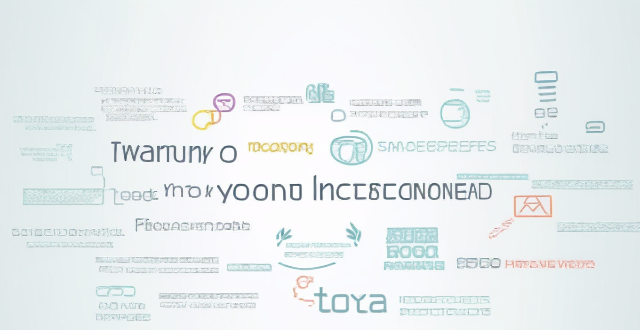
How can I protect my personal information online ?
In today's digital age, protecting your personal information online is crucial. To safeguard sensitive data, one should use strong and unique passwords, keep software and systems up-to-date, be careful with public Wi-Fi networks, be wary of phishing attacks, and limit the amount of personal information shared online. These steps can significantly reduce the risk of having personal information compromised online.

How can I find discounts and coupons for online shopping ?
Online shopping has become a popular way to purchase goods and services. However, it can be challenging to find discounts and coupons that can help save money. Here are some tips on how to find discounts and coupons for online shopping: 1\. Use coupon websites like RetailMeNot, Honey, and Rakuten. 2\. Follow social media pages of online stores for exclusive discounts and coupons. 3\. Sign up for newsletters from online stores to receive updates on the latest deals. 4\. Check out flash sales on websites like Amazon, Walmart, and Best Buy. 5\. Use price comparison websites like PriceGrabber and Google Shopping to find the best deal on a product. 6\. Look for free shipping offers on the retailer's website or through coupon websites. 7\. Use credit card rewards to save money on purchases. By using these tips, you can save money on your online purchases.
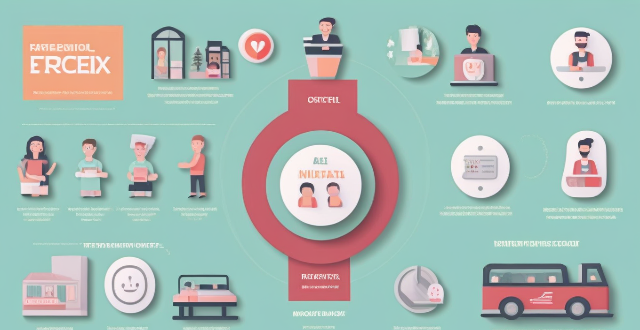
How do celebrities balance their personal and professional lives on social media ?
Balancing personal and professional lives on social media can be challenging for celebrities. Clear boundaries, separating personal and professional accounts, scheduling posts wisely, engaging with followers appropriately, and seeking professional help when needed are effective strategies for maintaining this balance. By following these strategies, celebrities can maintain a healthy balance between their personal and professional lives on social media while still connecting with their fans in meaningful ways.

What is online privacy and why is it important ?
The text discusses the definition and importance of online privacy, which is the ability to control personal information when using the internet. Online privacy protects sensitive data such as browsing history, location, communications, and personal details from being accessed, collected, or used without consent. It is important for protecting personal information, allowing control over personal data, enabling freedom of expression, building trust in digital services, and ensuring economic benefits. Best practices for online privacy include using strong passwords, keeping software up-to-date, being cautious on social media, avoiding public Wi-Fi, reviewing privacy policies, and monitoring financial statements for signs of fraud or identity theft.

What role does the media play in promoting physical activity and healthy lifestyles ?
The media has a significant impact on promoting physical activity and healthy lifestyles by raising awareness, disseminating information, providing motivation and inspiration, increasing accessibility and convenience, and offering practical health tips. Through educational campaigns, success stories, fitness challenges, online workouts, and health tips, the media can encourage people to adopt healthier habits and increase their physical activity levels.

How can individuals protect their privacy rights online ?
In today's digital age, protecting your online privacy is crucial to safeguarding your personal information from potential threats and misuse. Here are some key steps you can take to ensure your privacy rights are upheld while browsing the internet or using online services: Use strong passwords and two-factor authentication, be cautious with personal information, use encrypted connections, keep software up-to-date, review privacy settings regularly, and educate yourself about online scams and phishing attempts. By implementing these strategies, you can significantly enhance your online privacy and reduce the risks associated with sharing personal information on the internet.

What is the impact of social media on women's mental well-being ?
Social media has become an integral part of our daily lives, and it has both positive and negative impacts on women's mental well-being. In this article, we will discuss the various ways in which social media affects women's mental health. ### Negative Impacts: #### 1. **Comparison and Jealousy** One of the most significant negative impacts of social media on women's mental well-being is the constant comparison and jealousy that arises from seeing other people's highlight reels. Women often compare themselves to others on social media, leading to feelings of inadequacy and low self-esteem. This can result in anxiety, depression, and even eating disorders. #### 2. **Cyberbullying and Harassment** Social media platforms are also notorious for cyberbullying and harassment, particularly towards women. Online harassment can take many forms, including trolling, stalking, sexual harassment, and doxxing. These actions can have severe consequences on a woman's mental health, leading to trauma, anxiety, and depression. #### 3. **Addiction and Time Management** Social media addiction is another issue that affects women's mental well-being. Spending excessive time on social media can lead to procrastination, reduced productivity, and poor time management skills. This can cause stress, anxiety, and feelings of guilt, ultimately affecting a woman's overall mental health. #### 4. **Body Image Issues** Social media is flooded with images of perfect bodies and beauty standards, which can negatively impact a woman's body image. Constant exposure to these unrealistic beauty standards can lead to body dysmorphia, eating disorders, and low self-esteem. ### Positive Impacts: Despite the negative impacts, social media also has some positive effects on women's mental well-being. #### 1. **Support and Community** Social media provides a platform for women to connect with like-minded individuals and form supportive communities. These online communities can offer emotional support, advice, and encouragement, helping women cope with various issues they face in their personal and professional lives. #### 2. **Education and Awareness** Social media is an excellent source of information and education on various topics related to women's health, such as menstrual hygiene, reproductive rights, and breast cancer awareness. This increased awareness can empower women to make informed decisions about their health and well-being. #### 3. **Self-expression and Creativity** Social media platforms provide women with an opportunity to express themselves creatively through writing, photography, art, or other forms of content creation. This creative outlet can serve as a therapeutic tool for women to cope with stress, anxiety, or depression. #### 4. **Career Opportunities** Social media has opened up numerous career opportunities for women in fields such as digital marketing, content creation, and influencer marketing. These opportunities allow women to pursue their passions while maintaining flexible work schedules that accommodate their personal lives. In conclusion, social media has both positive and negative impacts on women's mental well-being. While it can lead to comparison, jealousy, cyberbullying, addiction, and body image issues, it also provides support, education, self-expression, and career opportunities. It is essential for women to be aware of these impacts and use social media mindfully to maintain their mental health and well-being.

How does the media influence the perception of different sports and their respective fan bases ?
The media significantly impacts sports perception and fan bases by focusing on popular sports, creating celebrity athletes, promoting major events, fostering online communities, and shaping public opinion. This influences how people engage with and view various sports.

How can businesses use social media to increase brand awareness ?
In today's digital age, social media has become an essential tool for businesses looking to increase their brand awareness. Here are some effective strategies that businesses can use to enhance their brand recognition through social media: 1. Define your target audience and tailor your messaging accordingly. 2. Choose the right platforms based on your target audience and industry. 3. Create high-quality, engaging content that aligns with your brand values and resonates with your target audience. 4. Leverage influencers in your niche to expand your reach and credibility. 5. Run targeted social media ads to quickly raise brand awareness and drive traffic. 6. Engage with your followers by responding to comments, messages, and mentions promptly and professionally. 7. Monitor analytics provided by each social media platform to understand what's working and refine your strategy accordingly.

What are some tips for maximizing savings with online shopping coupons ?
Maximizing Savings with Online Shopping Coupons: Tips and Strategies Online shopping has become an integral part of our lives, and using coupons can help us save a significant amount of money. Here are some tips for maximizing savings with online shopping coupons: 1. Sign up for Newsletters: Many online stores offer exclusive discounts and coupon codes to their newsletter subscribers. Sign up for the newsletters of your favorite stores to receive updates on the latest deals and promotions. 2. Use Multiple Coupon Codes: Some online stores allow you to use multiple coupon codes in a single transaction. Try combining different coupon codes to maximize your savings. For example, you can use a discount code for a percentage off your purchase and another code for free shipping. 3. Check for Store-Specific Discounts: Some online stores offer store-specific discounts that can be applied to your purchase. Check the store's website or contact customer support to find out if there are any available discounts. 4. Shop During Sales and Promotions: Keep an eye out for sales and promotions offered by online stores. Many stores offer discounts during holidays, special events, or seasonal changes. You can also check websites like RetailMeNot or Honey to find current promotions and coupon codes. 5. Use Price Comparison Websites: Before making a purchase, use price comparison websites like PriceGrabber or Google Shopping to compare prices across different retailers. This can help you find the best deal and potentially save you money. 6. Look for Free Shipping Offers: Free shipping offers can save you money on your purchase. Look for online stores that offer free shipping or have a minimum purchase requirement for free shipping. You can also try using a coupon code for free shipping if it's available. 7. Stack Coupons with Cashback Offers: Some cashback websites like Rakuten or TopCashback offer additional cashback when you shop through their website. You can stack these cashback offers with coupon codes to maximize your savings. 8. Follow Social Media Accounts: Follow the social media accounts of your favorite online stores to stay updated on their latest deals and promotions. Many stores announce exclusive discounts and coupon codes on their social media platforms. 9. Join Loyalty Programs: Joining loyalty programs of online stores can provide you with exclusive discounts and rewards. These programs often offer points or rewards for every purchase made, which can be redeemed for future purchases or discounts. 10. Be Patient: Sometimes, waiting for the right moment to make a purchase can lead to bigger savings. Keep an eye out for upcoming sales or promotions, and hold off on making a purchase until you find the best deal.